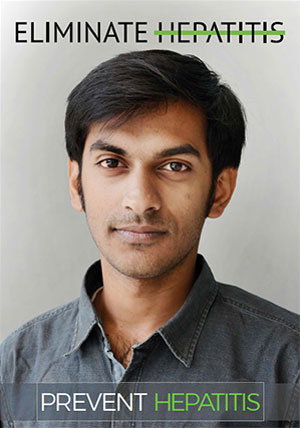 Cairo, 27 July 2017 - The World Health Organization and its partners will commemorate tomorrow World Hepatitis Day to add momentum to efforts aimed at implementing WHO's global health sector strategy on viral hepatitis for 2016–2021 and to help Member States achieve the final goal: Eliminating Hepatitis. For this occasion an event will be held at Serena Hotel in Islamabad, Pakistan on 10 August 2017.
Cairo, 27 July 2017 - The World Health Organization and its partners will commemorate tomorrow World Hepatitis Day to add momentum to efforts aimed at implementing WHO's global health sector strategy on viral hepatitis for 2016–2021 and to help Member States achieve the final goal: Eliminating Hepatitis. For this occasion an event will be held at Serena Hotel in Islamabad, Pakistan on 10 August 2017.
In 2015 nearly 325 million people around the world were living with chronic hepatitis infections, out of which 1.34 million people died. In reality, both hepatitis B and C are preventable while hepatitis B is manageable and hepatitis C is now curable: 95% of people with hepatitis C can be completely cured within 2–3 months.
The Eastern Mediterranean Region is one of the regions most affected by viral hepatitis in the world. Estimates indicate that currently more than 15 million people are chronically infected with hepatitis C and 21 million with hepatitis B. Many people in the Region still acquire the infection in health care settings, through unsafe injections or inadequately screened blood transfusions.
“No one should die of viral hepatitis and no one should get infected, as we know how to treat and prevent the infection”, said WHO Regional Director Dr Mahmoud Fikri. “I acknowledge the efforts of Member States in our Region. I commend those efforts and call for their acceleration. Many patients are waiting for us to make treatment available, affordable and accessible,” said Dr Fikri. “I call upon all Member States, local and international partners and civil society groups to join hands with WHO in this noble goal.”
In 2014, Member States of WHO adopted a comprehensive resolution urging countries to develop and implement coordinated multisectoral national plans for preventing, diagnosing, and treating viral hepatitis. In parallel, WHO developed the first-ever Global Health Sector Strategy for Viral Hepatitis. This strategy is rooted in the global commitment to the Sustainable Development Goals and to universal health coverage. It sets out the vision of global stakeholders and Member States towards eliminating viral hepatitis by 2030.
At the regional level, WHO has given special priority to hepatitis B and C prevention, diagnosis and treatment. To guide implementation of the Global Health Sector Strategy for Viral Hepatitis within our Region, a regional action plan for the hepatitis response has been developed. This action plan was endorsed by Member States.
What can you do for World Hepatitis Day?


